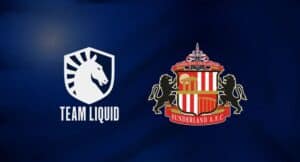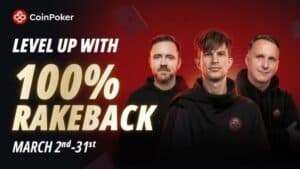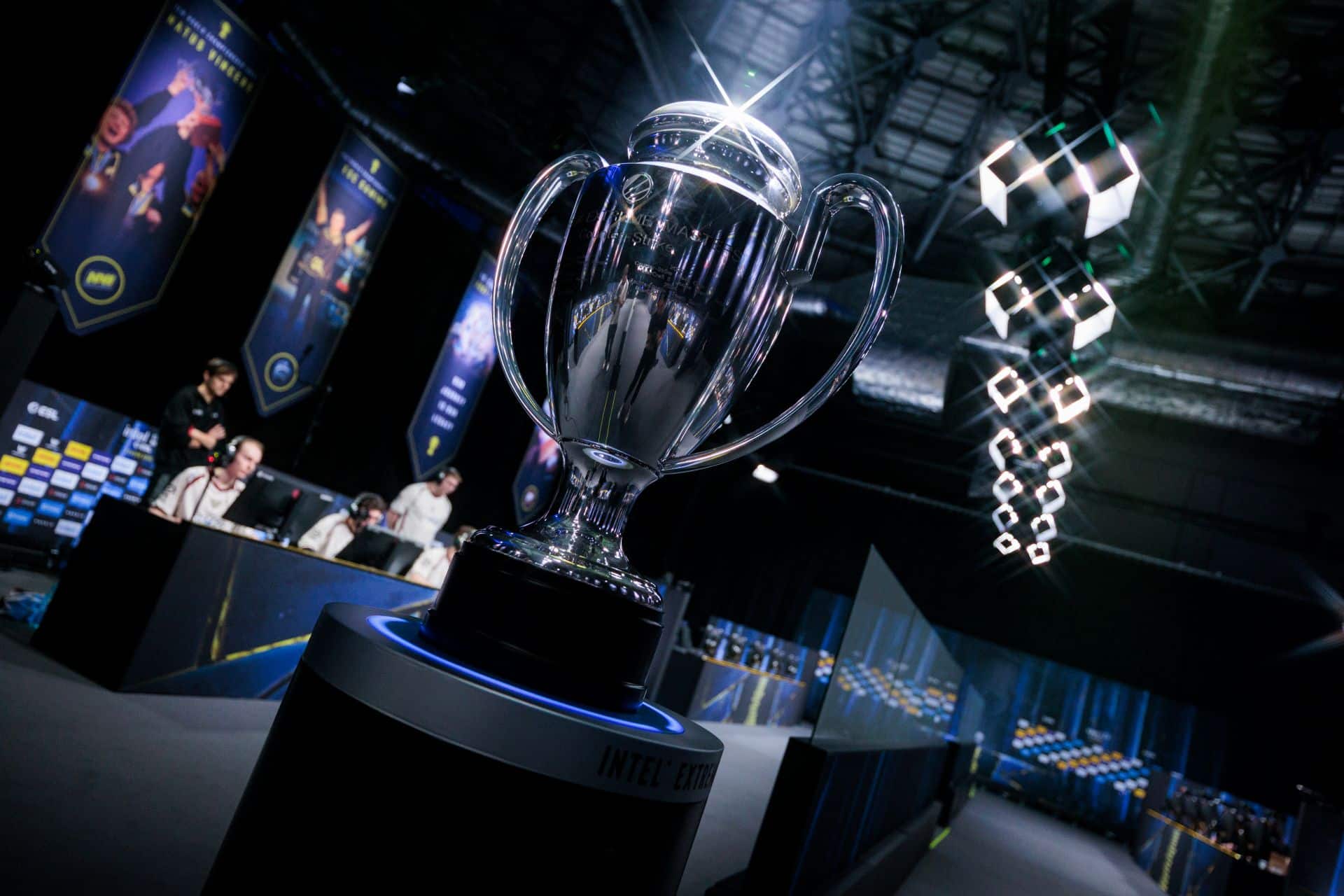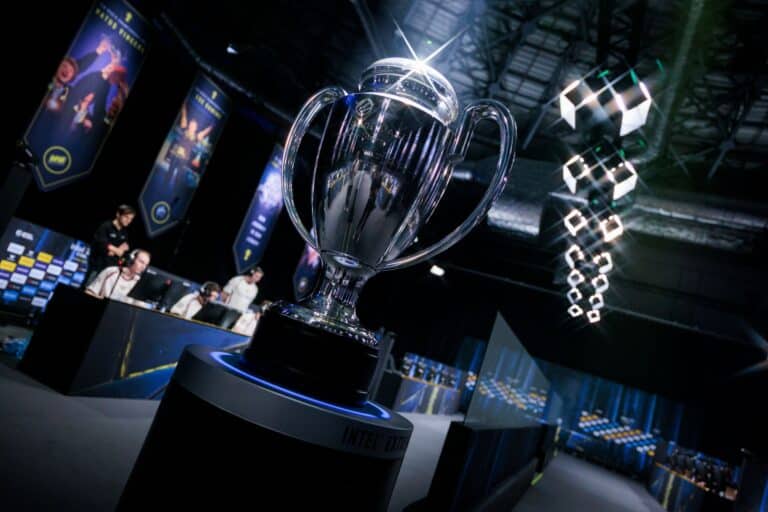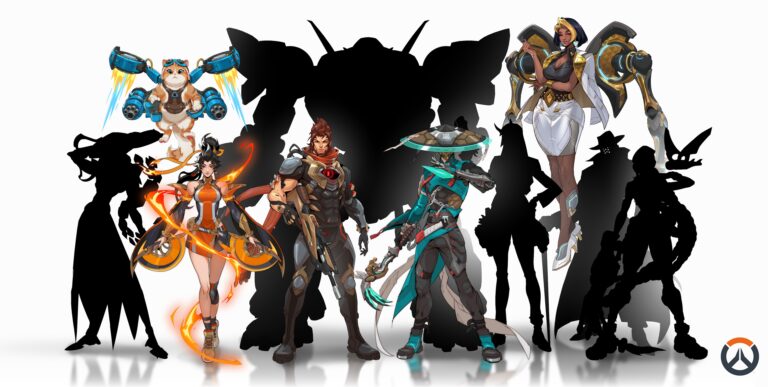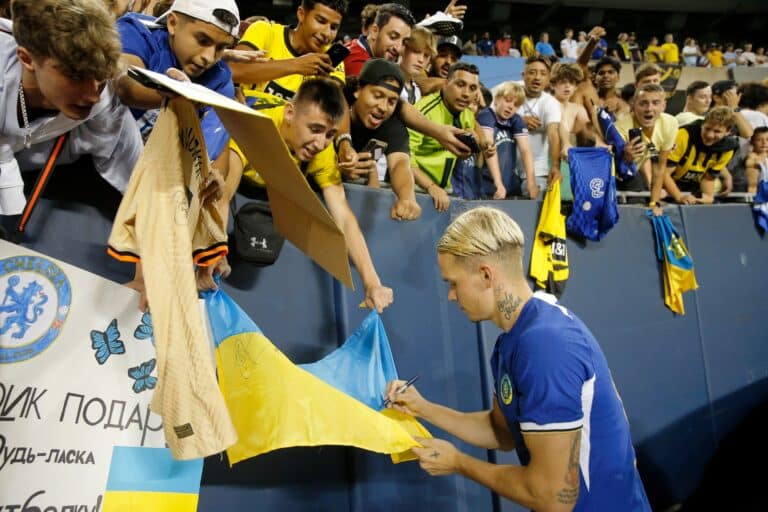“There are constantly things that interrupt the flow of conversation.” – YNk on Desk Analysis in 2025, missing out on the Major, and resisting the ‘hot takes’ meta
Darragh Harbinson, Senior Editor
Last Updated: 28/11/2025
In 2015, Janko ‘YNk’ Paunović transitioned from working for ESL as an observer to being a desk analyst.
10 years later, the Serbian has become an institution of Counter-Strike analysis, in a career which has also taken him to coaching roles in FaZe and MIBR.
Esports News UK spoke to YNk about how desk analysis has evolved over his 10 years of experience, both for better and worse.
YNk discusses how desk analysis has changed, his dream desk segment, working with Richard Lewis & Thorin, and missing both Counter-Strike Majors in 2025.
In Part 2, YNk gives his thoughts about the form of the teams coming into the StarLadder Budapest 2025 Major.
Esports News UK Interview with Janko ‘YNk’ Paunović
You started analysing on the desk a decade ago, in 2015. How has it changed, and how has your approach changed?
Well, I think it’s changed in various ways. When I first started, I was really focused on the game and on the details of what was happening on the server.
I felt at the time there wasn’t really someone doing that on the desk in the early stages; a lot of it was narrative-driven.
I was able to focus on that early on in my desk work. But over time, it’s really been about expanding what I’m able to do and being more versatile, connecting everything from the stuff that happens on the server to the bigger picture and the narratives.
I just try to provide entertainment in whichever way.
“Post-COVID, it feels that there’s a lot more rigidness in the structure… There are constantly things that interrupt the flow of conversation.”
– YNk on broadcast production changes
Sometimes the game is enough to provide that. Sometimes you need to go outside of the game.
Really, ever since I got back from coaching, I’ve also tried to bring that perspective into it, too.
What it’s like being behind the players and what these teams go through when they’re on the stage and leading up to games, in terms of the preparation, individual player development, team atmosphere, team culture, and the relationships within the team, all that sort of stuff.
Just lately, I’ve been trying to bring unique takes, thinking a little bit outside the box instead of maybe going for some low-hanging fruit or just going for shock and sensation and whatnot.
I’m really trying to dig a little bit deeper and bring some of the underlying storylines to the viewers.
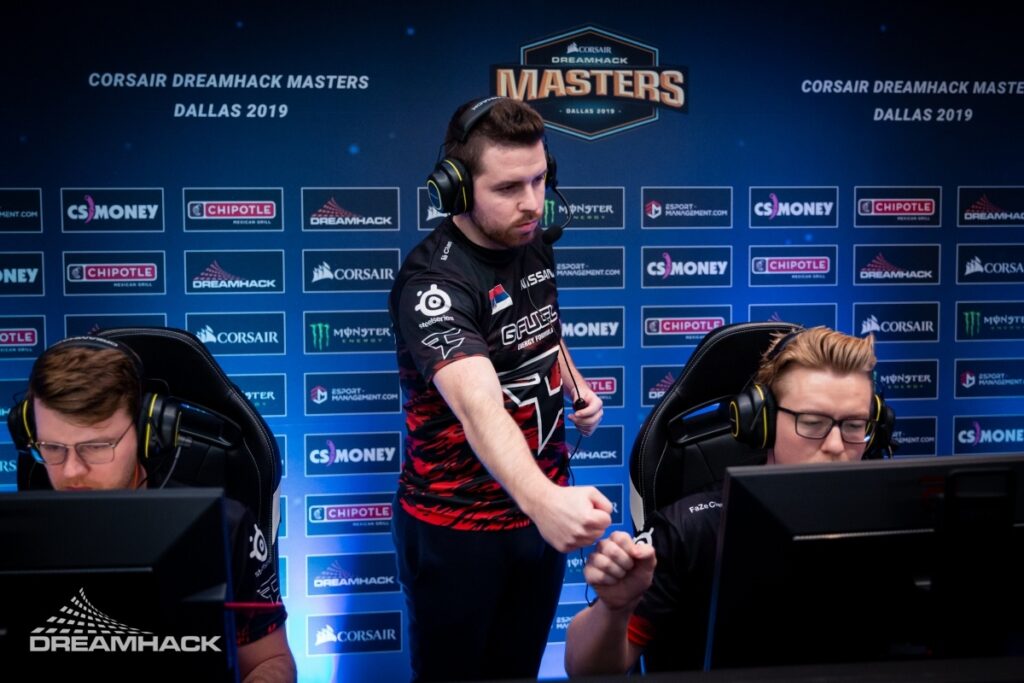
“When it comes to the desk, whether it’s hosting or the analysts, it does feel somewhat more shallow than it was before.”
– YNk on the desk talent pool
On the broadcast side of things, I have the feeling that when I was starting out, when it was me, Machine, and Spunj working the ESL circuit, things were a lot more loose and free-flowing.
I don’t even remember talking to production all that much before the day started or after the day started. It was usually down to the host to do that and be aware of, “Okay, these are the sponsor call-outs and this is how much time you have,” and whatnot.
The analysts would just be able to talk, and the host would obviously interject with questions and follow-ups.
It was much easier to flow, and it felt like we were able to flow very naturally and just deliver a very good product.
Post-COVID, it feels that there’s a lot more rigidness in the structure; it’s a lot more set.
There are constantly things that interrupt the flow of conversation, whether it’s interviews, content pieces, or ad breaks. So it’s difficult to get into that sort of flow.
You have way less time to work with, outside of maybe the playoff games, where you do get a decent chunk of time to break down things.
Yeah, those are maybe some of the big changes.
“When you have just guys agreeing with each other all the time, it doesn’t provide for much entertaining TV.”
– YNk on similar voices sharing the desk
I think the talent pool has also changed significantly when it comes to the desk. When it comes to casting, it’s different people there, but we still have high-quality casters across the board.
You just look at the lineup for the Major, and it’s four strong casting pairs. But I think when it comes to the desk, whether it’s hosting or the analysts, it does feel somewhat more shallow than it was before.
Not necessarily that there’s just a lack of quality. It’s more that people have similar strengths in terms of what they do.
That’s why you have people trying to do different things to bring some of that versatility and be able to go back and forth on a desk, because when you have just guys agreeing with each other all the time, it doesn’t provide for much entertaining TV.
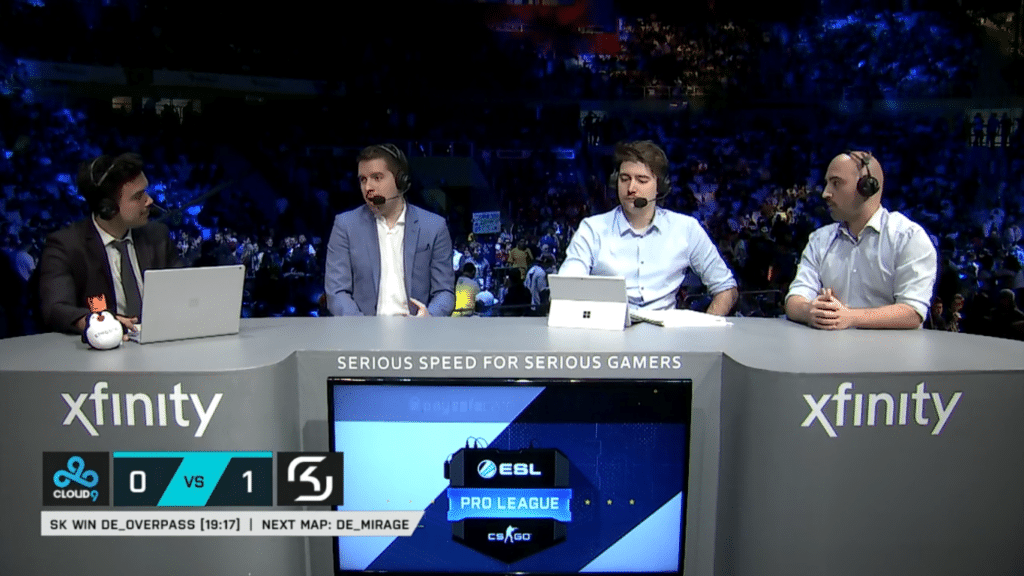
“I’m not saying things for the sake of getting attention. I’m saying them because I think they’re relevant and important to the broader conversation.”
– YNk on avoiding hot takes for the sake of engagement
You have, at times, faced backlash for being very outspoken or forthright, but it always seemed to have good reasoning behind it. What do you think of the current ‘Hot takes’ meta in analysis, to be deliberately provocative?
Yeah, I mean, I understand where the sensational content is coming from; people engage with that content, and that’s why people keep doing it. For me personally, it’s not my cup of tea.
I’m not saying things for the sake of getting attention. I’m saying them because I think they’re relevant and important to the broader conversation.
Sometimes that will be a mundane thing and something that sounds somewhat boring. Sometimes it may be provocative, but I am not going to wrap it and say it in a way just for the sake of it being provocative.
That is one of the nuances of our job and one of the skills, really: you can make your point in many different ways. So how do you do it in a way that is engaging for the viewer, but it doesn’t lead into just being cruel and berating a player or berating a team?
Still getting your point across in a strong and entertaining, appealing way, but not just outright attacking people or just throwing out strong statements because you know they’re going to provide a soundbite and be shared all over social media or something like that.
I think it’s mostly just digging a bit deeper into some of the talking points. For example, one of the more provocative things I was bringing up was saying Shiro was overrated at the start of the year or throughout last year and that he’s one of the least impactful AWPers.
Nowhere in that was I saying he’s a bad player or that he isn’t really good, but it’s like, in certain areas of the game, he’s very predictable. He’s maybe a bit too passive for an AWPer, which makes it easier for the opponent when you’re game-planning against them because you just know where he’s not going to be, more so than where he will be.
Adding that element to why some teams have an easier time against Spirit than others is important.
.@TalkingCounter Discord when sh1ro whiffs pic.twitter.com/T8AFJvO8o8
— Janko Paunovic (@YNk) February 8, 2025
“I guess it’s ultimately just about trying to stay true to the eye test and what I see, whether it’s on the server or the body language of the players.”
– YNk on his analytical tastes
Whether it’s exploiting that [knowledge], or talking about whatever the current landscape is and the dominant storylines are, whether it’s the upstarts of the Mongols and Aurora at the start of the year, as national teams breaking through into the circuit.
Then how were the Mongols able to do that, and how Aurora has been lacking, and then bringing some of the things from my coaching experience, when you just see it on the player cams—that things are off, there’s too much frustration.
Similar to Astralis currently, you can just tell something is really off. When a team isn’t necessarily cheering when they have good moments and someone has a big clutch, that’s not normal for a team where everything is fine.
So, yeah, I guess it’s ultimately just about trying to stay true to the eye test and what I see, whether it’s on the server or the body language of the players.
People really like to hate on the Falcons; I know it’s popular now, and they’re calling for everyone’s head on that team, ‘everyone should be removed,’ ‘just one more superstar’, and all of that stuff.
But, you know, if you watch them play, or when they added kyousuke to the roster, with each event, they’re getting better and better.
Sure, they have an issue in some of the highest-pressure games where they don’t play up to the level that they showed previously in the tournament but they’re not the first team to go through that.
I think when you watch them play, there’s clear improvement, and it feels like it’s a matter of time before they crack the final couple of things where they’re able to go all the way and lift the trophy, while you have most people portraying them as if they’re some team that isn’t doing anything, that’s failing miserably and not really justifying the investment, which I don’t really feel like is the case at all.
“I’ve always really enjoyed working with Richard [Lewis] as a host. He was one of the first hosts I ever worked with. I think Richard is great at providing a little bit of his own opinion and setting up the conversation, understanding the strengths of his analysts and who he could ask what sort of a question that they can bring some good insight on.”
– YNk on his working chemistry with Richard Lewis
If you were in charge of arranging your dream desk segment, what would it be like, and who would be on it?
Well, I think my vision of what a desk should be and how it should look is definitely something that would be like an Inside the NBA sort of a studio desk, where you have a very competent and great host, and then you have people on the desk, the analysts, who also have relationships between them.
So it’s not just about people talking about the game and breaking down the game; you need to have chemistry so that the viewers will engage and watch because they want to see some back and forth.
Like, they know that Jason and I are going to go back and forth. He’s going to be on my ass about whatever, “Oh, where’s your boy NiKo now, and oh, it’s another game where he’s not showing up, what’s going on over there?”
To be able to do that, you need to have the right people on the desk, and you also need to give those people time and allow the discussion to free-flow, because some of the funniest things you see in these sort of studio shows is when people go off cuff and off script and they just start talking about something random, and someone says something funny, and then it goes into all of that.
Of course, the game comes first, and when you do have the benefit of working high-stakes games with the best teams in the world, most of the conversation will revolve around those teams in that game, and that’s where it shifts a little bit.
But for me, that would be the setup where you would allow those people the time to talk and break it down and have the host be able to guide the discussion and maybe throw a couple of questions in there that he knows will drive the conversation and really spark some debate and discussion.
As for me personally, I’ve always really enjoyed working with Richard [Lewis] as a host. He was one of the first hosts I ever worked with. I think Richard is great at providing a little bit of his own opinion and setting up the conversation, understanding the strengths of his analysts and who he could ask what sort of a question that they can bring some good insight on.
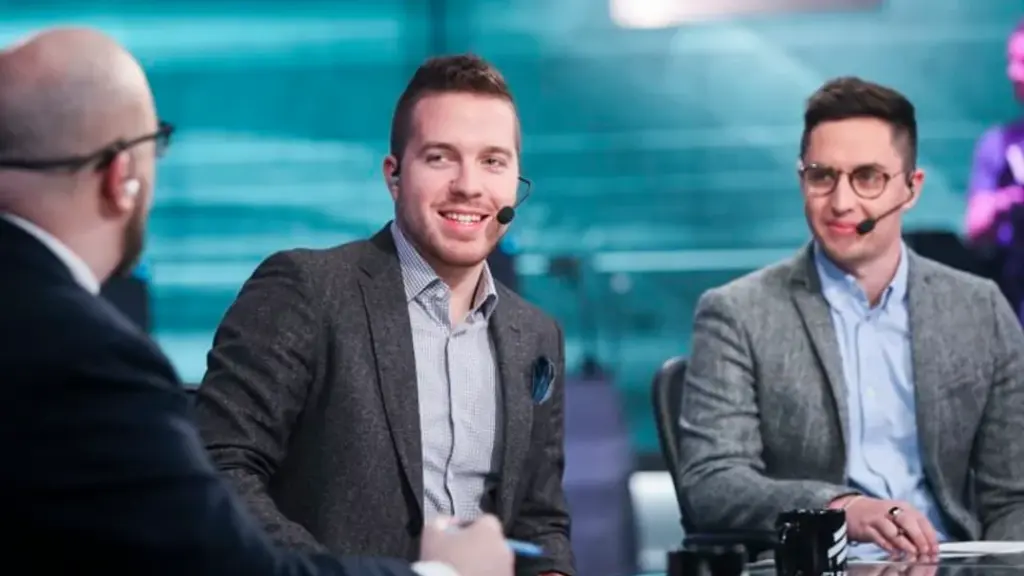
I still think Thorin is one of the best analysts we’ve ever had because, similar to what I brought up, his forte is completely different from anyone else who’s been doing this.
He isn’t super knowledgeable about the details of the game and the micro and anything like that, but he is an encyclopedia of knowledge when it comes to the history of teams, the players, the narratives. He’s so great at storytelling.
I’ve always enjoyed working with him and Richard because early on, I could just focus on what I’m good at, and they would take care of the other stuff, the banter and the narrative. So I think two of them, absolutely.
Then I really enjoy working with Moses, even though he prefers casting, but we’ve been friends for 10 years now, we have such a great relationship, and he’s such a great guy to have on the desk because he always is able to bring in unique takes, challenge you, and throw in some comedic relief at the right time.
So I think for that type of show, like I was referencing, that would be my dream team, let’s put it that way.
“People sometimes confuse that because it’s maybe a deeper aspect of the game or more analytical, that you’re supposed to deliver it in a super serious, mundane tone… it still has to be engaging.” – YNk on making analysis engaging for fans
You are very analytical when it comes to the game, but there has been some discussion that maybe that is not popular for casual fans. I think Richard Lewis said something to the effect of ‘We had the Mahone Zone, nobody watched it.’ Do you have any frustration as someone who wants to discuss the game deeply that more analytical discussions aren’t as encouraged?
I wouldn’t call it frustration; I think Jason shares Richard’s sentiment about the Telestrator segments and all of that, and I disagree with both of them. I think they’re just not produced or done as well as they could be.
I think the age of the one-guy-standing-over-there-on-his-own segment might be behind us. Sometimes it’s still okay, probably in between maps when you’re just trying to break down the round, I think that’s still fine.
I think the best way to use it, though, would be two people being there, two analysts, and you’re doing something, let’s say in the pre-game, where you’re sort of guessing the maps, and you have a pretty good feel of what the map is going to be.
Then you have something from that map from one of the teams, and you show it, maybe from the CT and the T side of that round.
Then you have the two analysts sort of go back and forth at the Telestrator over it, and you’re saying, “Alright, Astralis threw this wall of smokes outside, they’re setting up, they have their outside players sort of lurking behind them.”
Then the other guy steps in, “And the CTs are not going to use their HEs, they blow it up, they don’t see anyone. That causes them to leave yard, and they think now it’s going to be an A hit.”
The other guy steps in, “Stairs down, secret, now they’re going to fake inside, go ramp, stair activates, kills the rotate, they win the round.” That’s sort of a thing. When they’re also how you’re delivering the round, it still has to be engaging.
Watch @mahone_tv break down how on earth @FalconsEsport lost that 5v3 round 🧑🏫 pic.twitter.com/gvZrU16PlH
— BLAST Premier 💥 (@BLASTPremier) June 12, 2025
People sometimes confuse that because it’s maybe a deeper aspect of the game or more analytical, that you’re supposed to deliver it in a super serious, mundane tone.
No, you still need to be aware of the delivery and the tone and how you speak; it still has to be engaging.
I think that’s probably the best way to do it because I realised over time that even though you might have an insane point and an insane round, if you don’t deliver it properly, people won’t find it super engaging.
I think that has been one of the issues with the more analytical content.
A little bit of it is when you’re talking about post-map stuff, there’s just not a lot of POVs and angles that you can get footage from.
When I’m building a clip, it’s probably just what was on the program and maybe the replay observer, which sometimes catches an overview of the bombsite, sometimes he’s on something else.
So, if I see something happen through the minimap or however, but I just don’t have a good angle to probably show it, that also adds a degree of difficulty to building some of these rounds for these segments.
“The desk is a place where they can get away with more, not just in terms of switching it up and hiring different people, but also saving money in terms of the budget.” – YNk on missing 2025’s Majors
You missed out on being on the desk in both Majors this year. Do you have any insight into why that decision was made?
I wish I knew for a fact, but I think compared to, let’s say, pre-COVID, it’s obvious that (this is going to sound arrogant), but I was going to say that the Major isn’t all the best people in their roles being hired like it was before.
I think there’s definitely more politics involved, and unfortunately for me, it all seems to be around the desk.
People don’t necessarily want to risk not having a high-profile casting duo there, even if they would prefer not to hire them; they just feel like that’s something where they can’t take that risk.
The desk is a place where they can get away with more, not just in terms of switching it up and hiring different people, but also saving money in terms of the budget.
“That’s fine, and I don’t expect to do a BLAST event ever again.” – YNk on Tournament organisers having different preferences
So for me personally, I’ve made peace with that a while ago, where, “Okay, this is not a testament to my skill or how good I am at my job, it’s just this company doesn’t want to hire me for reasons XYZ,” and that’s just the reality for me at the moment.
I’m fortunate enough to work a lot of the events over the year. Of course, it’s disappointing to not do the Major, but I still get plenty of work.
The Majors being at the end of the season now just means you get a longer break, which is also welcome.
I’m a young dad as well, so spending more time with family is definitely something that I welcome and appreciate.
It’s just sometimes also when it comes down to relationships, where I’ve worked with StarLadder a lot pre-COVID. I worked a lot of their events, and it just feels strange that there’s not even a conversation about attending the Major in any meaningful way.
At that point, you wonder. With BLAST, it’s understandable, right? They have their guys for the playoffs; before it was Pimp and Maniac, now it’s Pimp and Maui, and everyone else there is sort of to fill the spots, and they try to bring in different people to make it different than other desks. That’s fine, and I don’t expect to do a BLASTevent ever again.
But with someone like StarLadder or when it happened for a couple of PGL ones, that was where I was a little bit caught off guard in the sense of I felt I had a good working relationship with those companies and then just to sort of not get any feedback even about, “Hey, we did it for reasons X, Y, and Z,” so that maybe it’s something you need to work on for the future.
But yeah, I’ve got time, I’m fine, I don’t worry about it.
Meet the ever-so-lovely talent lineup for the StarLadder Budapest Major 2025!
— StarLadder CS2 (@StarLadder_CS) October 28, 2025
But wait, we might have a few more surprises in store! Stay tuned for our special guests!👀 pic.twitter.com/9YZzyx4jHi
Darragh Harbinson, Senior Editor
Darragh Harbinson is an esports writer specialising in Counter-Strike. He has written for Esports News UK, Esports Insider, UKCSGO, Dexerto, and Rush B Media.
Stay Updated with the Latest News
Get the most important stories delivered straight to your Google News feed — timely and reliable





From breaking news and in-depth match analysis to exclusive interviews and behind-the-scenes content, we bring you the stories that shape the esports scene.
Monthly Visitors
User Satisfaction
Years experience
Latest Interviews
